Video
The built-in video player features an impressive list of codecs and containers. It includes modern formats such as FLV and MKV, and even the recently introduced H.265 and VP8 (WebM):
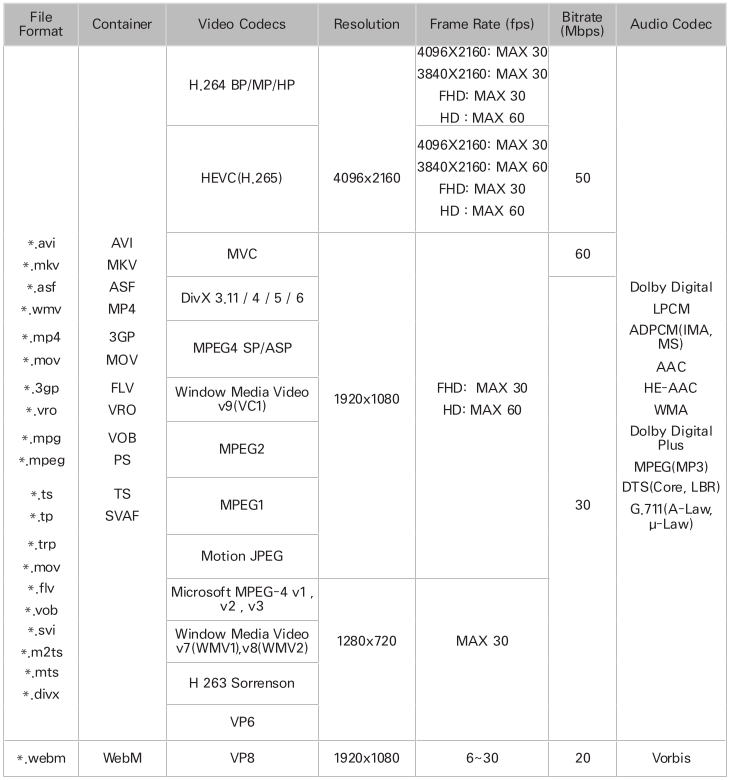
4K video
One of the main price components in this TV is its Ultra HD support, also known as 4K or 2160p, that is 4096×2160 pixels. Since the panel’s own resolution is 3840×2160, it’s either cropped or downscaled.
So what is all that 4K video about? Firstly, plugging in an external USB drive turned out to be the only way to play it. My Mac Mini, which I use as a media PC, is only capable of 1920×1080. And if you play video over DLNA, it cannot keep up with the FPS.
Secondly, of course it provides an unparalleled image quality, with every tiny detail visible, but—you have to be standing 1 to 1.5 metres away from the screen! Even at two metres you’ll barely notice a difference with Full HD (partly due to a very good job the device does when upscaling an HD video stream). Usually I’m watching TV from the couch some five metres away. Besides that, I find it stupid to stand a metre away from such a screen.
Thirdly, 4K videos aren’t easy to find. Among ones that are available, it’s mainly some demo’s by TV vendors. Their files are also huge. The only source of Ultra HD videos known to me is Netflix, but, considering the previous item, is it worth the effort?
All in all, at the moment I see the support for 4K as an investment.
3D video
As for 3D video, everything is working smoothly. The TV can recognise a 3D video stream in a Left/Right or Top/Bottom layout and asks about switching to the 3D mode. It also has a 2D-to-3D conversion function, whose usefulness is questionable. In my opinion, all this 3D thingy adds very little to your watching experience.
Back to the video player. Its user interface is as simple as a Kalashnikov.
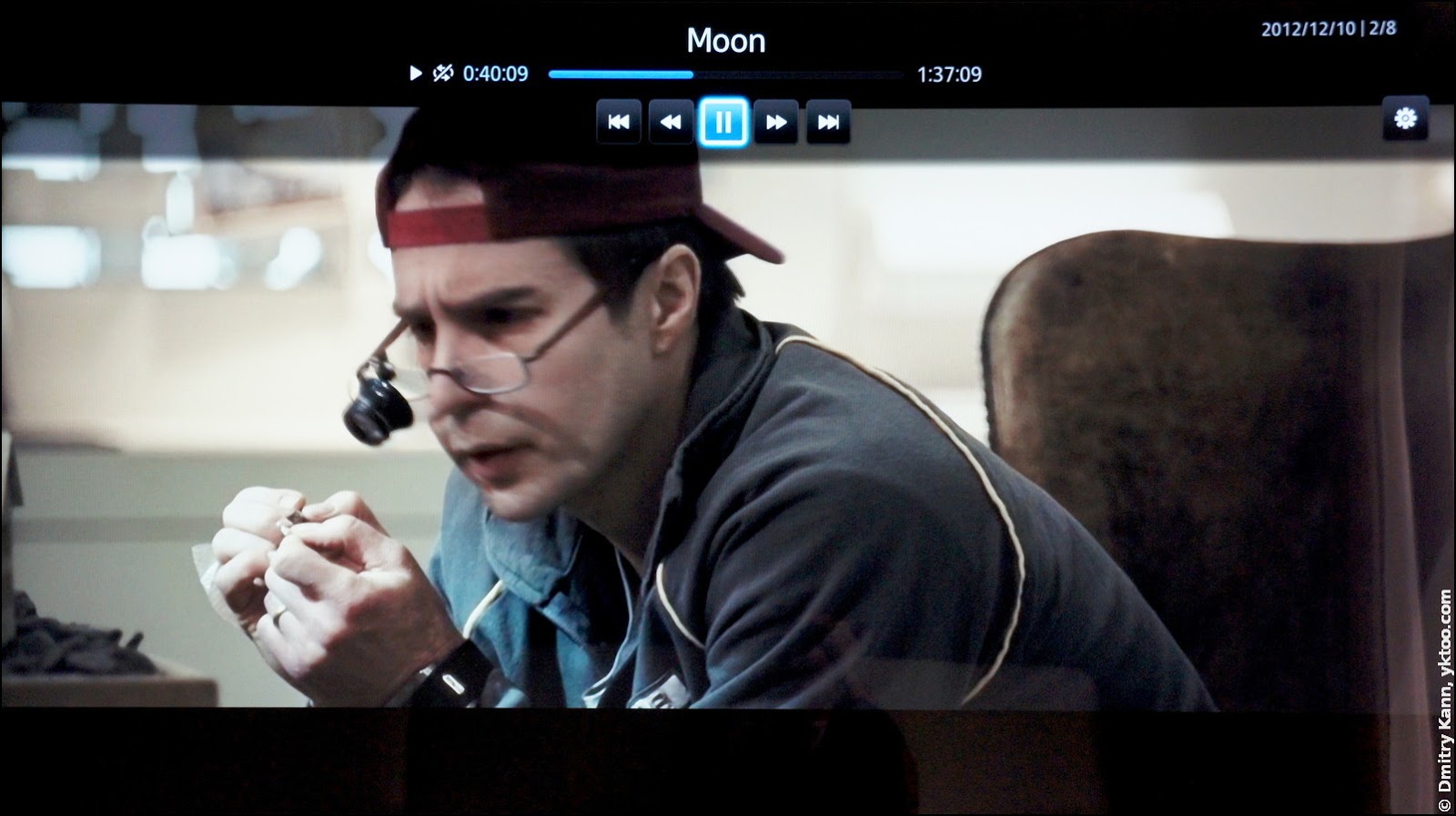
It has full support for subtitles, both embedded and external (.srt, .sub, .psb etc.)
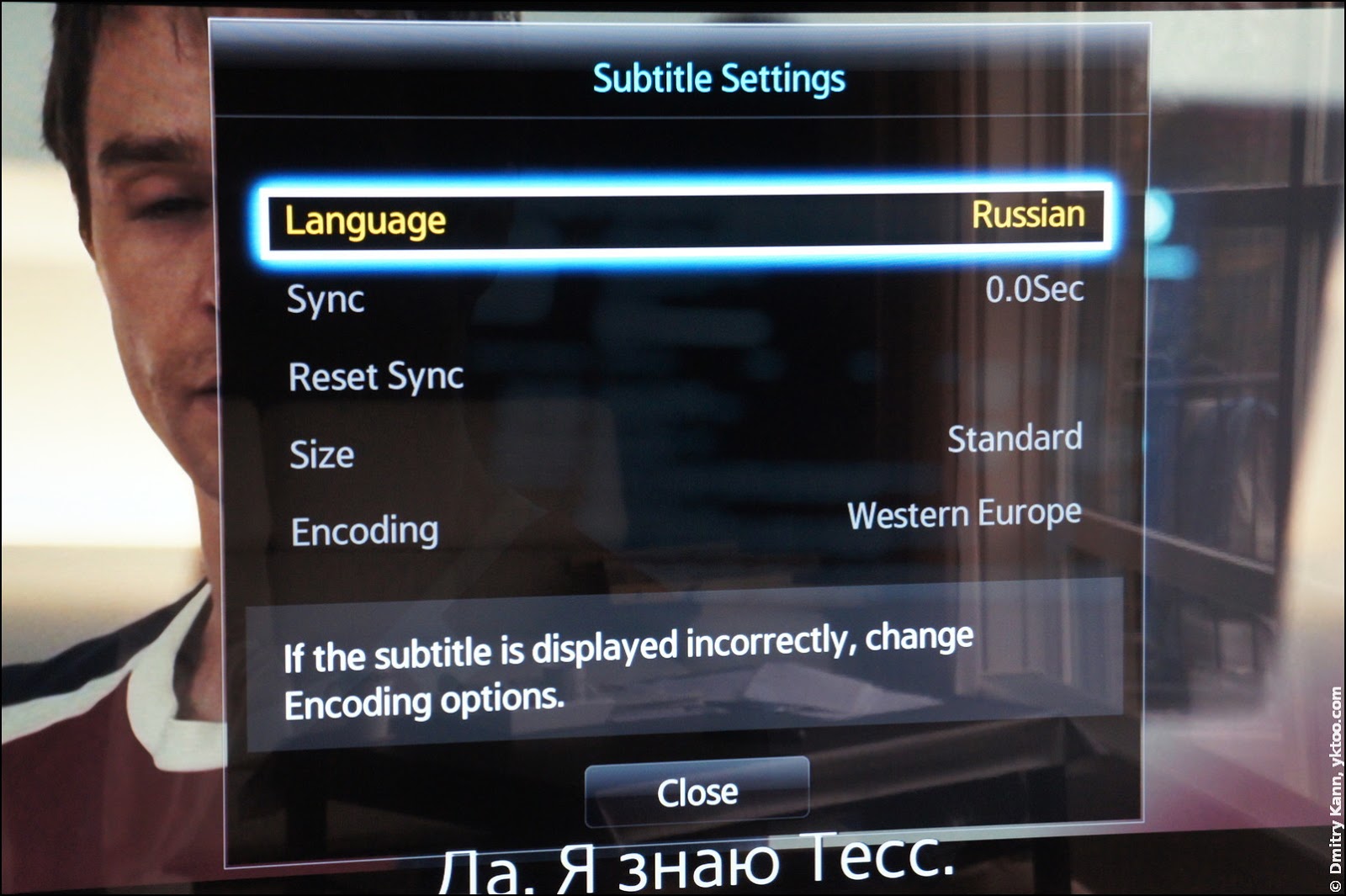
You can also navigate by title:
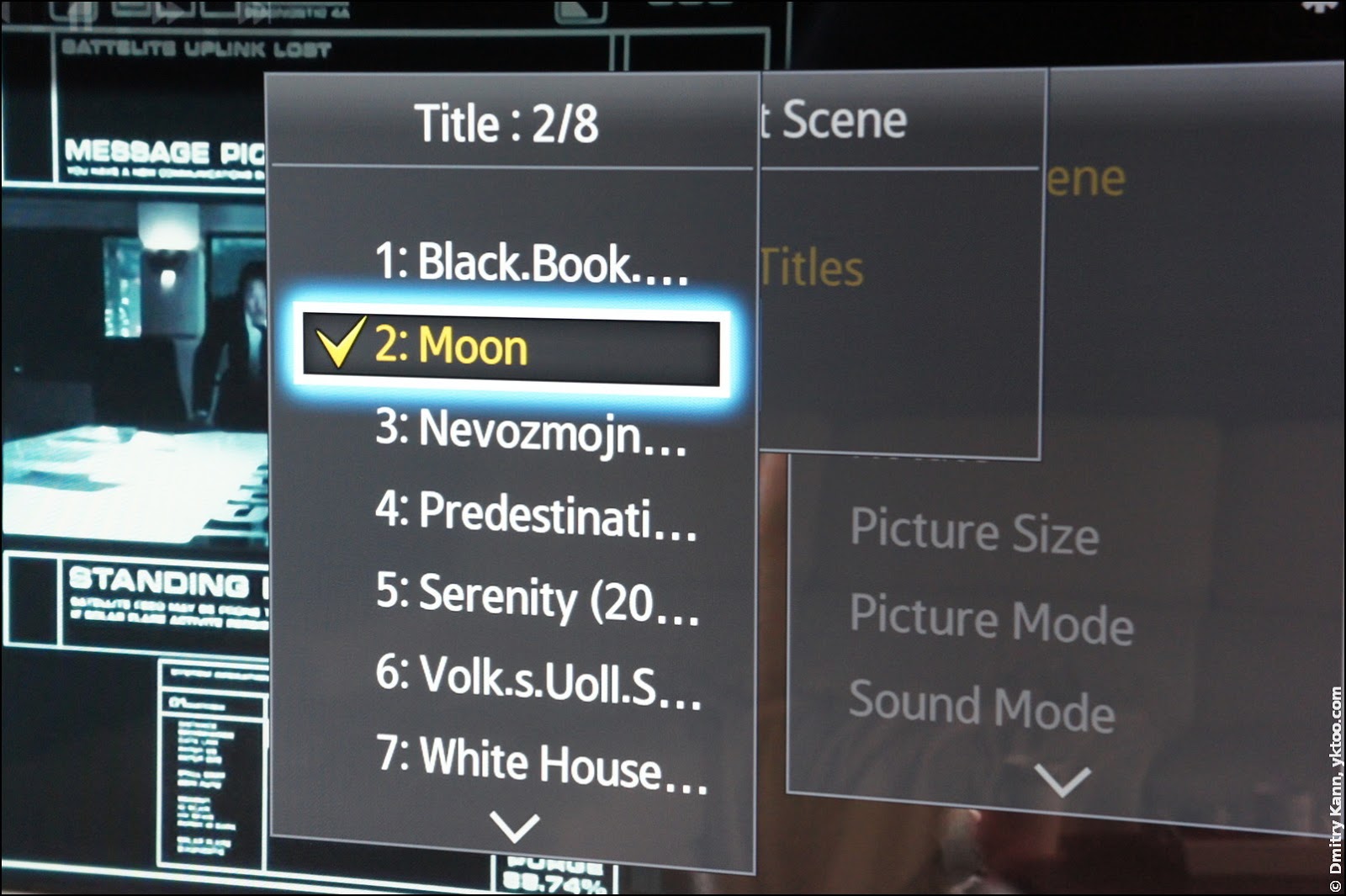
And, most often, seek to an arbitrary position:
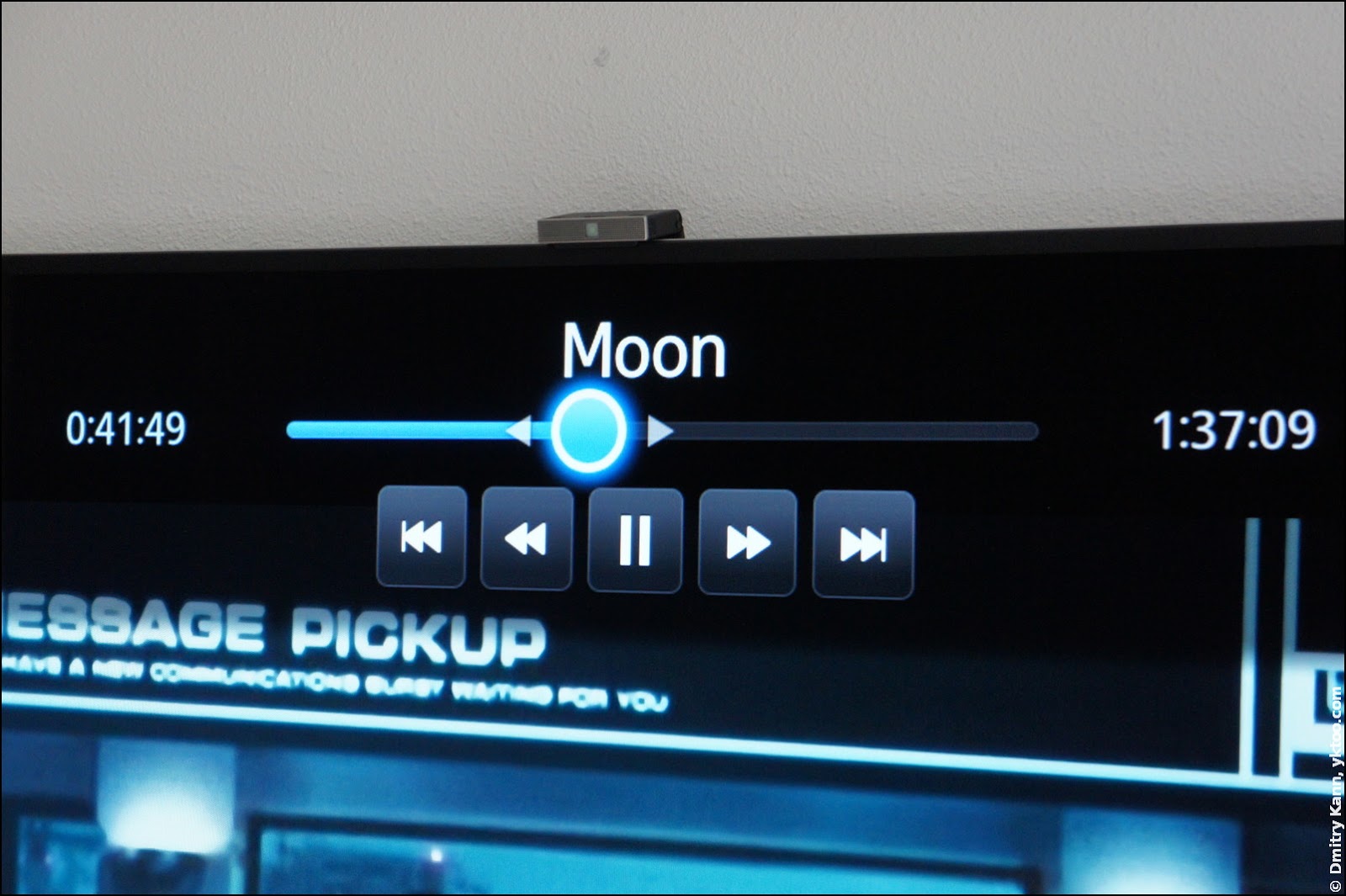
Audio
The supported audio formats:
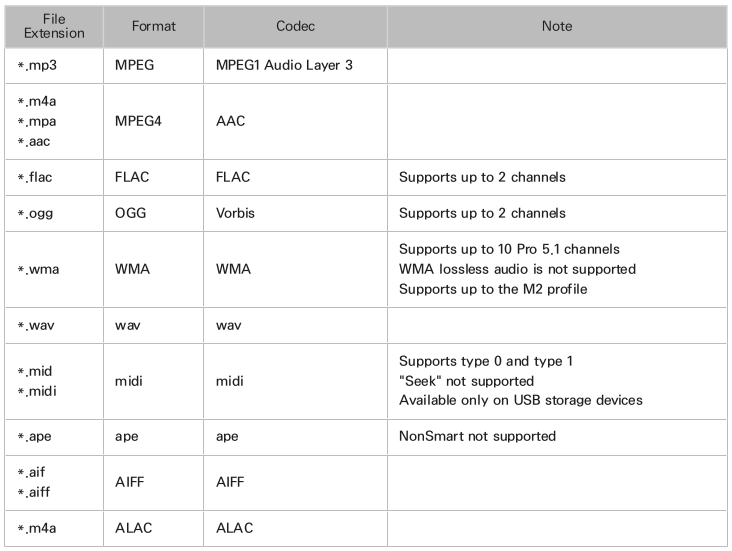
The audio player is also not very sophisticated. And it’s a bit, erm… bulky for such a screen.
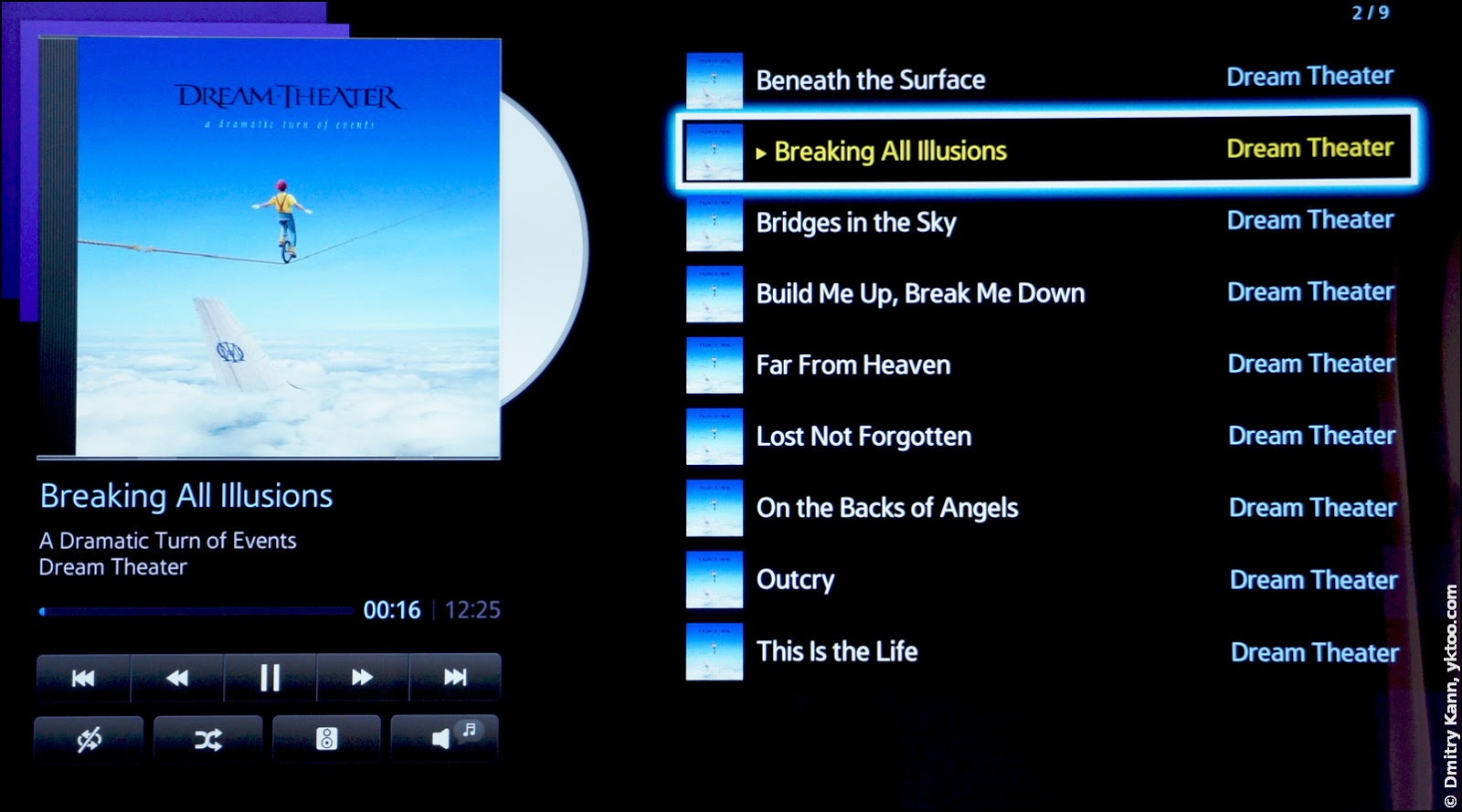
The sound is quite okay for the form factor of a chalkboard. But nothing too fancy, so I plan extending it with a soundbar and a subwoofer.
 — world’s fastest URL shortener
— world’s fastest URL shortener
Comments